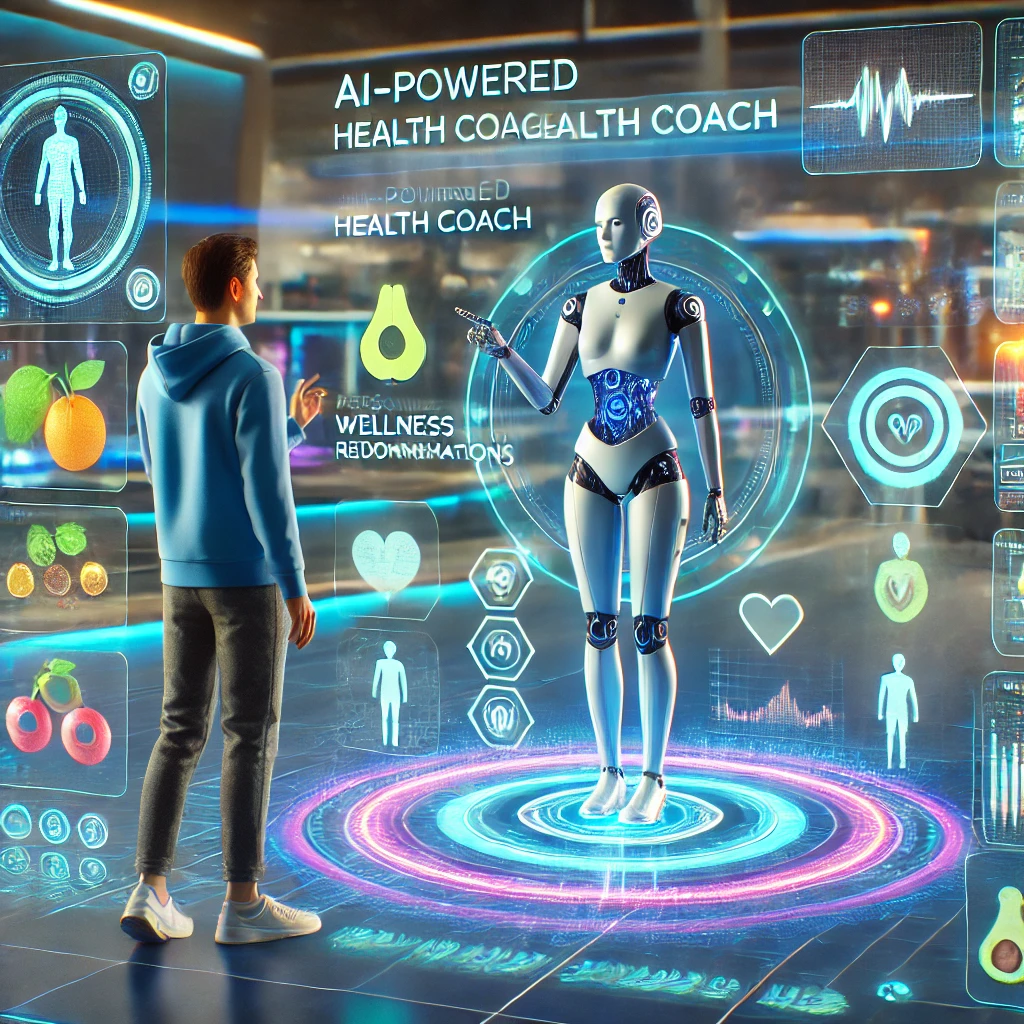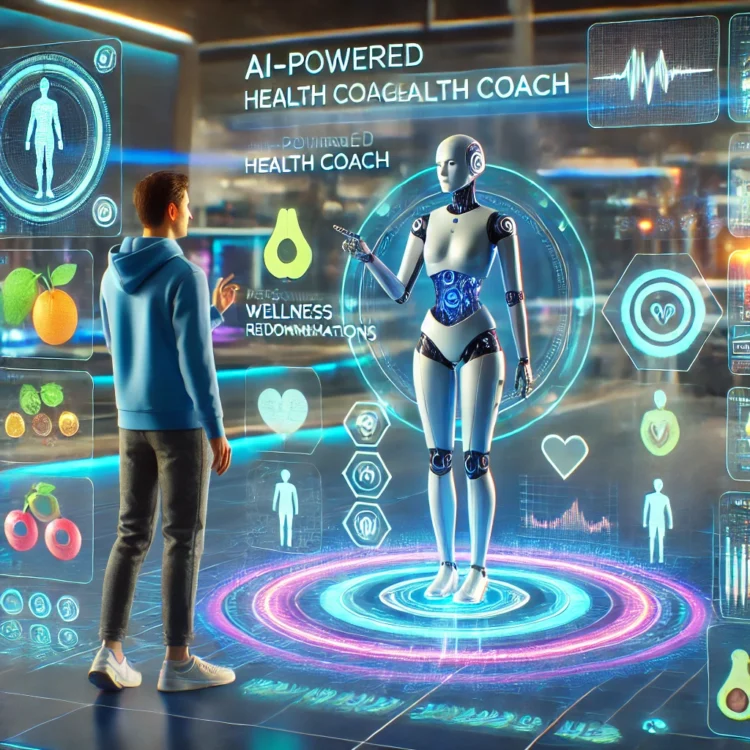The integration of mobile and wearable devices with generative AI marks a new era in personal health coaching, offering continuous, personalized guidance that traditional methods simply cannot match. As an expert in SEO optimization and ranking, I understand the power of blending cutting-edge technology with health and wellness. In this article, we’ll explore how AI health coaches are set to transform personal wellness, making it more accessible and effective than ever before.

Generative AI: The New Frontier in Health Tracking
In today’s fast-paced world, maintaining personal wellness can often feel like an uphill battle. The demands of work, family, and personal time leave little room for a healthy balance. Alarmingly, chronic conditions are responsible for 63% of global deaths, with the World Health Organization (WHO) attributing 38 million deaths annually to non-communicable diseases. In the United States alone, around 40% of adults live with at least two chronic conditions, 80% of which are driven by lifestyle factors like diet and exercise. Traditional health tracking methods, such as sporadic doctor visits or inconsistent workout routines, often fall short in providing the continuous, personalized guidance needed for effective health management.
Enter mobile and wearable devices, which offer continuous, detailed data on an individual’s physiological state and behaviors, including step counts, heart rate variability, and sleep duration. While these devices empower individuals to monitor their health, the real game-changer lies in their ability to act as a personal physician, reasoning with health data based on medical knowledge to provide personalized insights and recommendations. This is where generative AI comes into play. With its capacity to analyze and interpret complex, multimodal health data, generative AI bridges the gap between raw data and actionable health insights.
Imagine an intelligent system that not only tracks your daily steps and sleep quality but also identifies patterns, such as increased heart rate after stressful meetings, and suggests breathing exercises to help you relax. By leveraging the power of generative AI, these systems can provide highly personalized health recommendations, turning data into meaningful advice tailored specifically to you.
Introducing the AI Health Coach
An AI health coach is a digital tool that analyzes user data, lifestyle habits, and health metrics to offer personalized guidance. By processing information from wearable devices, mobile apps, and user inputs, AI health coaches carefully examine biomarkers like heart rate rhythms, sleep patterns, and exercise routines. Unlike generic advice, AI health coaches tailor their recommendations to individual circumstances, whether it’s adjusting dietary habits, optimizing sleep patterns, or enhancing exercise routines.
These AI health coaches act as supportive tools, encouraging healthier choices, celebrating milestones, and fostering consistency in personal wellness journeys. For example, when seeking advice on improving sleep quality, an AI health coach can perform a detailed analysis, assess data availability, calculate average sleep duration, identify irregular sleep patterns, and contextualize these insights within broader health considerations and population norms.
Generative AI for Health Coaching
Recognizing the promising potential of generative AI in health coaching, industry giants like Google and OpenAI have turned their attention to this innovative area. Google is leading the way with the development of the advanced tool PH-LLM, while OpenAI is making strides with its AI health coach through the Thrive AI Health startup.
Personal Health Large Language Model (PH-LLM)
Google’s DeepMind has developed the Personal Health Large Language Model (PH-LLM), designed to process personal health data and generate insights and recommendations to improve sleep and fitness patterns. PH-LLM is a fine-tuned version of Google’s Gemini model, a multimodal AI capable of understanding and generating content in various formats, such as text, audio, images, and video. By leveraging Gemini’s multimodal encoder, PH-LLM excels in textual understanding and reasoning, as well as interpreting raw time-series sensor data from wearables.
DeepMind integrates PH-LLM with an agent framework to employ code generation capabilities and information retrieval tools. This combination enables the agent to process data from wearable devices, perform complex calculations, identify trends, and integrate additional health knowledge by accessing a knowledge base via a search engine. Through iterative multi-step reasoning with individual data, medical knowledge, and specific user queries, the agent generates tailored insights and recommendations.
For example, when asked, “How can I feel more awake and energetic during the day?” the system searches credible sources and analyzes the user’s data, formulating specific queries to extract relevant information. Based on this analysis, the system might recommend increasing sleep duration or incorporating outdoor exercise to boost energy levels.
Thrive AI Health
Thrive AI Health, funded by OpenAI Startup Fund and Thrive Global, is developing a hyper-personalized AI health coach available as a mobile app and within Thrive Global’s enterprise products. This AI coach is trained on peer-reviewed science and Thrive’s behavior change methodology, including Microsteps—tiny daily actions that lead to healthier habits. It uses personal biometric, lab, and other medical data to learn user preferences and patterns across five key behaviors: sleep quality, food preferences, exercise habits, stress reduction, and movement patterns.
With its long-term memory, this AI coach offers real-time, personalized nudges and recommendations, helping users act on daily behaviors to improve their health.
Addressing the Complexities of AI Health Coaches
While AI health coaches hold great promise in combating chronic diseases, it’s important to acknowledge the role of social determinants of health. Factors such as access to healthcare, nutritious food, and leisure time significantly influence public health outcomes. Critics warn that AI coaches must consider these broader social contexts to avoid oversimplifying health challenges.
Additionally, ensuring the safety and efficacy of AI health coaches is paramount. Users must feel confident that these technologies adhere to rigorous standards and protect their data. As these tools evolve, addressing these challenges will be essential in realizing their full potential in supporting individual health journeys and advancing public health outcomes globally.
The Bottom Line
AI health coaches are poised to revolutionize personal wellness by combining mobile and wearable devices with generative AI. This partnership offers continuous, personalized guidance that traditional methods simply cannot match. As major players like Google and OpenAI invest in this technology, the potential for better health outcomes is significant. However, it’s crucial to address social factors influencing health and ensure these tools are safe and trustworthy. With thoughtful development and attention to these challenges, AI health coaches could play a key role in creating a healthier future for everyone.







No Comments
Leave Comment